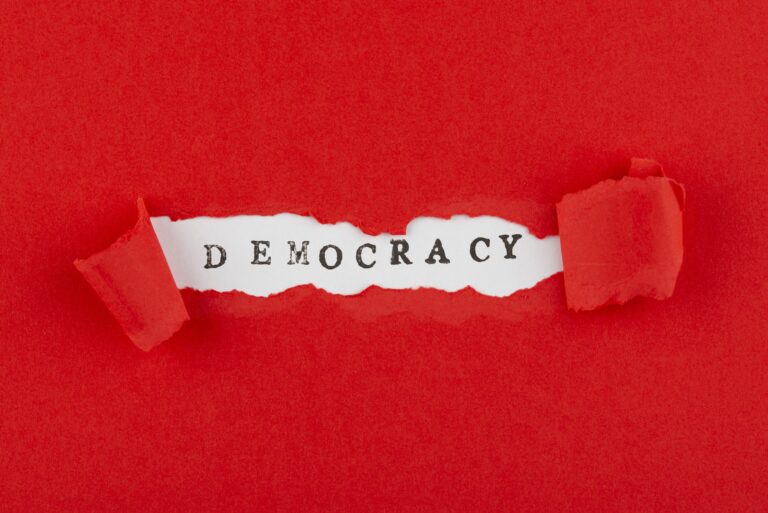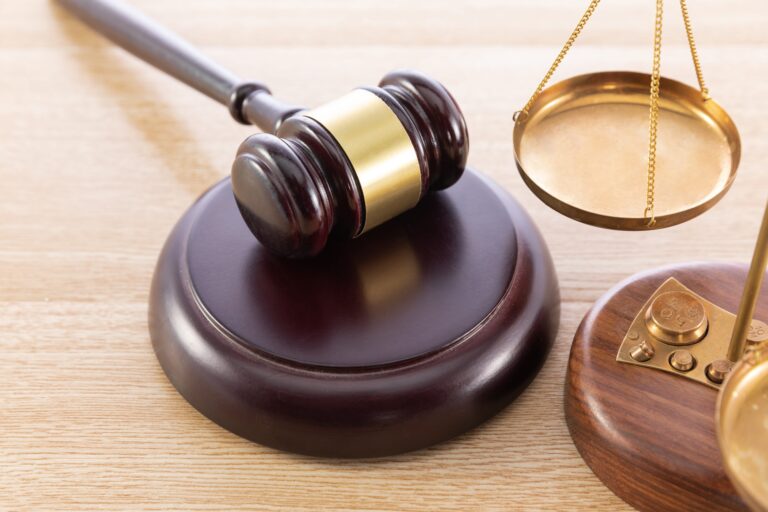Revitalizing Justice: Understanding the Waqf Amendment Bill for a Fairer Society

waqf
ANALYZING LEGAL FRAMEWORK, EVOLUTION & THE WAQF AMENDMENT BILL, 2024
-PRATIKSH SHARMA
Introduction of Waqf
The Waqf (Amendment) Bill, 2024 (Bill No. 109 of 2024) introduced in Lok Sabha by Minority Affairs Minister Kiren Rijiju in the Monsoon Session proposes approximately 40 amendments to the existing Waqf Act, 1995 (as amended in 2013). It aims to address several key issues related to the management and administration of Waqf properties and reduce the Waqf Board’s unchecked power, which currently lets them declare any property as Waqf without necessary checks. Currently Waqf Board is the third largest property holder in India after the Indian Railway and Ministry of Defense which has doubled since 2009 registered with around 8,72,292 as immovable, 16,173 movable and 356031 as e-states properties in India.
After an intense debate and opposition over concerns of potential infringement on property rights and allegations of community division, the house referred the Bill to Joint Parliamentary Committee (JPC) under Jagdambika Pal as Head of the Committee (Almost five years of any bill to JPC) for wider scrutiny.

WHAT IS WAQF?
Section 3(r), Waqf Act, 1995 defines waqf as: –
“The permanent dedication by any person, of any movable or immovable property for any purpose recognized by the Muslim law as pious, religious or charitable and including: –
(i). a waqf by user but such waqf shall not cease to be waqf by reason only of the user having ceased irrespective of the period of such ceasser;
(ii).a Shamlat Patti, Shamlat Deh, Jumla Malkkan or by any other name entered in a revenue record;
- “grants” , including mashrat-ul-khidmat for any purpose recognized by the Muslim law pious, religious or charitable ; and
- a waqf-alal-aulad to extent to which the property is dedicated for any purpose recognized by Muslim law as pious, religious or charitable, provided when the line of succession fails, the income of the waqf shall be spent for education, development, welfare ad such other purposes as recognized by Muslim law, and “waqif” means any person making such dedication.”
In general, “Waqf is the property given in the name of God for religious and charitable purposes which are typically used to finance educational institutions , graveyards, mosques and shelter
homes”. Waqf as defined by Mahomedan jurists’ states that literal means of Waqf means “detention” and it has been derived from the Arabic word “waqufa” which means “stoppage”. Basically, the whole institution of waqf has derived its authority from a tradition reported in Bukhari Sharif. The legal meaning of waqf, according to Abu Hanifa is “the detention of a specific thing in the ownership of the waqf or appropriator and the devoting or appropriating of its profits or usufruct” in charity on the poor or other good objects”.
The 600 trees of dates in Madina which were used to help of poor people of Madina are deemed as first example of Waqf. Auqaf Properties And Investment Fund is the organization which controls the waqf property of 27 countries of whole world.
The valid objects of Waqf are Mosque, construction of colleges, bridges, alms to poor persons, celebrating birth of Ali Murtaza, keeping “Tazias” etc. whereas objects prohibited by “Islam”
e.g. erecting or maintaining a church or temple, Waqf for repairs of the waqif’s secular property, objects which are uncertain etc. are invalid.
A waqf if, it is created for mixed purposes , some of which are lawful and some unlawful then it is valid for the lawful purposes whereas invalid to the rest. The rest waqf will be returned to the waqif (dedicator). Hence, if any a property is specifically not dedicated to a particular object then its obvious that it will be devoted only for the valid objects.
- Doctrine of Cy-pres
“Where a clear charitable intention is expressed in the instrument of waqf, it will not be permitted to fail because the objects, if specified, happen to fail but the income will be applied for the benefit of the poor or to objects as near possible to the object which failed”.
Essentials of Waqf:-
Perpetuity: In a Waqf, the property is permanently formed, therefore its advantages are available indefinitely. A Waqf cannot be established for a limited time.
Irrevocable: A Waqf is irreversible since the property is believed to belong to God.
Inalienable: Once a Waqf is formed, the property is thought to be held by God. Therefore, Waqf property cannot be sold, transferred, or encumbered. Any effort to alienate Waqf property is illegitimate unless it is required for the Waqf’s purposes and has been allowed by the court.
Absolute: The formation of a Waqf is unconditional and absolute; any conditional or contingent Waqf is regarded invalid.
Religious or Charitable Uses of Usufruct: The income and advantages from Waqf property must be utilized only for recognized religious, pious, or charitable reasons.
Kinds of Waqf:-
- Public Waqf:-A public waqf is one for a public religious or charitable object.
- Private Waqf:- A private waqf is one for the benefit of the settlor’s family and his descendants, and is called waqf-alla-aulad.
It was considered at one time that “ to constitute a valid waqf there must be a dedication of property solely to the worship of God or to religious or to charitable purposes, in other words , that a private waqf was in no case valid. But this extreme view is no longer tenable, and a private waqf may now be made subject to certain limitation”. These limitations were very strict under the law as it stood before the Wakf Act of 1913. They have been considerably relaxed by the Wakf Act. Auqaf (assets donated and notified as Waqf) are divided into private and public.Waqf exclusively for the settlor’s family, children and descendants in perpetuity are invalid whereas Waqf both for the benefit of the settlor’s family, children and descendants and for charity is valid.
Creation of Waqf:-
There is no specific way of creating a “Waqf”. If the above essential elements are fulfilled then a “Waqf” can be created. Though it can be said that “Waqf” is usually created in the following ways:-
By an act of a living (inter vivos) – when a person declares the dedication of his property for “Waqf”. This can also be done while the person is on the death bed (marj-ul-maut), in which case, he cannot dedicate more than 1/3 of his property for Waqf.
Any person who is not minor and is of sound mind can create Waqf. This Waqf can also be created by a Non- Muslim if he professes Islam and objective of creating the Waqf has to be Islamic.
Mutawalli or Managers of Waqf Property:-
Under Mahomedan law, when a waqf is created, all rights to the property transfer from the waqif (donor) to the Almighty. The mutawalli, or manager, does not own the property and is not a trustee in the legal sense but serves as a superintendent. His admissions about the trust’s nature are not binding on successors. Though similar to a trustee, he does not fall under the Indian Trusts Act but can sue for possession. If listed as a co-sharer, he can claim profits under the Agra Tenancy Act, 1926.
The founder of a waqf can appoint anyone, including women and non-Mahomedans, as mutawalli, except where religious duties are required, such as in mosques or dargahs, where women or non-Mahomedans cannot serve. However, secular roles like graveyard management can be performed by women.
EVOLUTION OF WAQF LAW & PROVISIONS IN INDIA:-
The writer of “Waqf Laws and Administration in India” S. Athar Hussain and S. Khalid Rashid states in their book that in India Waqf Board evolve between the 1206 to 1526 CE during Delhi Sultanate. Sultan Mujeemdin Sam Gaur gave Multan’s Jama Masjid two village in donation.
During British period London’s Privy Council’s Four Judges declared Waqf law as unconstitutional in the case of Abdul Fata Mahomad Ishak v. Russomoy Dhur Chowdhry, LR 22 Ind App 76 and other cases. Then in the year 1913 under the Mussalman Wakf Validating Act, 1913 Four Judges bench decision was reversed which legalized Waqf Laws. With the time passing The Mussalman Wakf Act, 1923 and The Mussalman Wakf Validating Act, 1930 were also passed during British regime.
After the partition of British India, the unclaimed property of Muslims who left India were given to the Waqf Board under the Wakf Act, 1954. This validated the Waqf Board and it started running as government institutions.
What is Waqf Board?
A waqf Board is a legal entity established by the government to manage and oversee the properties and institutions endowed for religious or charitable purposes in the Muslim Community. It can sue and be sued in court. Each state has their own Waqf board and there is no centralized Waqf board beside this there is the Central Waqf Council. Currently 32 Waqf Boards operates in India in different states and Union Territories which controls these Waqf properties. States such as Bihar also have Shia and Sunni separate Waqf Boards.
What is the Central Waqf Council?
The statutory body under the administrative control of the Ministry of Minority Affairs. It was established in the year 1964 under the provisions of Wakf Act , 1954.The role of the Central Waqf Council (CWC) was significantly expanded under the Waqf (Amendment) Act 2013. The Council is empowered to Advise the central govt. , state govt. and state Waqf Boards, monitoring properties, legal advice for protection and retrieval of waqf properties and removal of encroachments and welfare and deployment schemes.
CWC is composed of Union Minister in charge of Waqf serves as the ex-officio Chairperson. And 20 members(3 persons representing Muslim organization having all India character, 4 person of national eminence, 3 parliament members, 3 chairpersons of Board by rotation, 2 Judges of Supreme Court of High Courts, one advocate, one person to representing Mutawallis of waqf having gross annual income of 5 lakhs and 3 eminent scholars of Muslim Law) appointed by the Government of India. Each waqf must give funds to the council.
WAQF ACT, 1995:-
On 22nd Nov. 1995 Parliament of India repealed Wakf Act of 1954 to provide better administration and supervision of waqf in India. This act aims to ensure effective management and protection of waqf properties and is a crucial part of Islamic charitable law in India. This Act applies to all auquf whether created before or after the commencement to this act except the Durgah Khawaja Saheb Ajmer to which Durgah Khawaja Saheb Act, 1955 (36 of 1955 ) applies. Prior to this act there were different states Act. There were many issues and ongoing amendments in prior acts so a consolidated act was enacted which under its Section 112 repealed all other Acts.
Amendments to Waqf Act 1995:-
It has been amended several times but the notable amendment includes the Waqf (Amendment) Act, 2013 which enhanced the penalties, Strengthen the Waqf board powers and Waqf property Development facilities. This Act replace the word Wakf with Waqf from the Act and Wakf Act, 1995 became Waqf Act, 1995.
THE WAQF (AMENDMENT) BILL, 2024 (109 OF 2024) :-
The Draft bill states : “Based on recommendation of the High- high-level committee under the chairmanship of Justice (Retired) Rajinder Sachar and the Report of the Joint Parliamentary Committee on Waqf and Central Waqf Council and after having detailed consultation with other stakeholders, comprehensive amendments were made in the Act in the year 2013. Despite the amendments, it has been observed that the Act still requires further improvement to effectively address issues related to the powers of the State Waqf Boards, registration and survey of waqf properties, removal of encroachments, including the definition of the “waqf” itself.”
As per the Statement of Objects and Reasons, it has been found that the 1995 Act has not proved effective in improving the administration of auqaf.
NEED OF AMENDMENT :-
Transparency: The bill is intended to bring transparency in the current act by the 40 amedments
, including that Waqf Board will be requried to do necessary verification for claiming the proeprty.
Gender Diversity: With the motive of women empowermet, there is modification in the composition and functioning of the Waqf Boards by mentioning women representative in the board.
Limited Powers:– There was an unchecked power to these Boards which led to extensive claim of land by the board . It was necessary to limit its power for which these amendments were needed. e.g. In September 2022, the Tamilnadu Waqf Board claimed the entire Thiruchendurai village, which is predominantly Hindu. etc.
PROPOSED KEY AMENDMENTS:-
Renaming the Act and Scope:-
The bill seeks to rename the Act as “Unified Waqf Management, Empowerment, Efficiency and Development Act, 1995”. This way it has clearly stated the purpose and scope of function of the Act in its name.
Definition Clause:-
Under Section 3(r): “Waqf means the permanent dedication by any person (practising Islam for at least five years, of any movable or immovable property, having ownership of such property for any purpose recognized by the Muslim law as pious, religious or charitable.”
Section 3(r)(iv):- “Waqf-alal-aulad (An endowment for the family of the donor) to the extent to which the property is dedicated to any purpose recognized by Muslim law as pious, religious or charitable, provided when the line of succession fails, the income of the waqf shall be spent for education development, welfare (maintenance of widow, divorced woman and orphan in such manner, as may be prescribed by the Central Government) and such other purposes as recognized by Muslim law.”
Hence under this Act in general a Non- Muslim will not be able to make Waqf and Waqf income will have to be spend in the manner prescribed by the Government.
Addition of Section 3A, 3B and 3C for regulating waqf properties:-
Section 3A: Conditions for Establishing a Waqf.
- Only the lawful owner of the property, who has the legal authority to transfer or devote it, may create a
- The formation of a waqf-alal-aulad shall not affect the inheritance rights of any of the waqif’s successors, including females.
Section 3B: Waqf information to the Portal and Database.
- All waqfs that were registered prior to the 2024 amendment must provide information about the waqf and its properties to the portal and database within one month.
- Required information includes the deed, total yearly revenue from waqf properties, any current court cases, the mutawalli’s pay, annual taxes due, and the name and address of the waqf originator, as well as any additional
Section 3C: Misrepresentation of Waqf Status.
- Any government property that has been “identified” or “declared” as waqf, either before or after the modification, is not regarded waqf property.
- In cases of dispute over ownership of such property, a Collector must conduct an investigation and report to the State Government. The property in question will not be treated as waqf until the Collector submits his Position Of Survey Commissioner Omitted
In Section 4 (preliminary survey of auqaf ) of the 1995 Act, it was stated that the State government must appoint a Survey Commissioner to conduct a survey of auqaf in the State. In the 2024 amendment , the position of Survey Commissioner is replaced by Collector who shall exercise the jurisdiction. Further the nature of waqf apart form Shia or Sunni now also includes “Agahkhani waqf” or “Bohra Waqf”.
As per Section 5 (publication of list of auqaf) of the 1995 Act, once the report of the Survey Commissioner on the list of auqaf under Section 4 is given to the State government, the same shall be examined by Waqf Board. Within six months, the Waqf Board shall forward the report to the Government for publishing in the official gazette. The revenue authorities shall accordingly update the land records. No, revenue authorities before updating the land revenue records will mandatorily have to issue public notice of 90 days, in tow daily newspaper circulating in the localities of such areas where the waqf properties are located. One of the notices shall be in regional language. This is to give the affected persons opportunity to be heard.
Suit Can Be Filed To Challenge The Decision Of Waqf Tribunal/Omittion Of Section 40
Under Section 6(disputes regarding auqaf) of 1995 Act, whether a property specified as waqf in the list of auqaf is waqf or not or whether it Shia or Sunni waqf shall be decided by a Tribunal instituted under Section 83 consisting of one person from State Judicial Service holding rank of civil judge or district judge, on person from State Civil Services equivaled to Additional District Magistrate, and one person renowned in Muslim law and Jurisprudence. The decision of Tribunal shall be final. Moreover, not suit to the Tribunal shall not be instituted one year after publication of the list of auqaf. This is read with Section 40 (Decision if a property waqf property ) where the Board may itself collect information regarding any property which it has reason to believe to be waqf property.
However, as per 2024 proposed amendment, decision of the Tribunal is not final and suit can be constituted within a period of two years form the publication of the list of auqaf. An application can be constituted even after two years if the applicant satisfies that it had sufficient cause for not making an application within time. Moreover, Section 40 is omitted.
Constitution Of Board And Council
Under Section 9, which specifies the Constitution of Central Waqf Council, the composition is more or less the same except the members appointed by the Central Government under the 1995 Act include “ at least two members to be women”. No, only two women members could be appointed amongst the list specified and two Non-Muslim members shall also be appointed.
As per Section 14 which specifies the Composition of Board of Auqaf, the composition is more or less the same except only two members shall be women and now two be non- Muslim, “at least” one member each form Shia, Sunni and OBC among Muslim communities and one- member form Bohra and Aghakahni shall be nominated if they have functional auqaf in State.
No Registration Of Auqaf Without Execution Deed
According to Section 36 (Registration of Auqaf), no waqf can be established without the execution of a waqf deed. Previously, registration was required under Auqaf Board regulations; however, it is now offered via an online portal and database.
Collectors must now conduct an investigation into the validity of applications. If the Collector reports that the waqf property to be registered is in dispute or is government property, no registration will take place until the matter has been addressed by the relevant court.
Audit Of Accounts Of Auquf
The State Government may also conduct an audit of the auqaf accounts, subject to Section 47 (audit of auqaf accounts) of the 1995 Act, which requires an auditor chosen by the Auqaf Board. As per the proposed change, the panel of auditors produced by the State Government will henceforth be the source of auditors appointed by the Auqaf Board. Additionally, the Comptroller and Auditor-General of India’s designated auditor may be directed by the Central government at any moment. The audit report may be published in a way determined by the Central Government.
Other Key changes-
It guarantees that waqf-alal-aulad does not prevent women from inheriting property. It leaves out clauses pertaining to “waqf by user.” If a member of an illegal association, it allows for the expulsion of mutawalli. By leaving out Section 107, it applies the Limitation Act, 1963. It lowered the yearly payment due to the Board from 7% to 5%.
PARLIMENTARY DEBATE ON THE BILL
The lack of legislative competence, the erosion of federalism, and the infringement of the basic freedom of religious communities to regulate their own affairs are among the many concerns brought up by the opposition. It is anti-minority, divisive, and unconstitutional, according to the opposition. Because it rips apart the secular fabric of the nation protected by “Articles 25 (Freedom of conscience and free profession, practice, and propagation of religion) and 26 (Freedom to manage religious affairs) of the Indian Constitution,” Alappuzha, Kerala, MP K.C. Venugopal declared that the Bill is “an attack on the constitution.” This is accomplished by the proposed reforms, which include adding non-Muslim members to the Auqaf Board and Waqf Council. Every religious denomination is protected by Article 26 to conduct its own internal religious affairs. He claimed that this clause directly attacks religious freedom and faith.
In addition, Thoothukkudhi, Tamil Nadu’s Kanimozhi Karunanidhi stated that this goes against Article 30 of the Constitution, which gives minorities the authority to manage their own institutions. Opposition members Sudip Bandyopadhyay, N.K. Premchandran, and MP Asaduddin Owaisi emphasized that waqf property management is a fundamental Islamic ritual for Muslims. As a result, any infringement of the same would be considered a breach of the Right to Equality and discrimination based on religion under Article 15 (1).
It is possible to understand this further from the constitutional structure under Schedule VII, where land is a subject of the State List, he said. The ruling in Sardr Syedna Taher Safiuddin Saheb v. State of Bombay (1962), which found that religious questions are entirely outside of State intrusion and are naturally subject to public order, morality, and health, must be kept in mind even when States are given more authority.
In contrast, Rijiju supported the bill and informed the legislature that all of the changes— including the addition of non-Muslim members—were in line with the Sachar Committee’s recommendations. According to him, the bill’s clause in question does not violate any religious organization’s right to freedom guaranteed by Articles 25 through 30.
Rejecting the allegations that the waqf board is a religious denomination, he said that the waqf board is not covered by Articles 25 and 26 according to the ruling in Bramchari Sidheswar Bhai & Ors. V. State of West Bengal (1995).
Furthermore, he said that the proposed changes to the bill fall under the legislative purview because they are implemented in compliance with the Concurrent List’s Entry 10 (Trust and Trustees) and Entry 28 (Charities and benevolent institutions, charitable and religious endowments, and religious institutions). Citing the Waqf Inquiry Report of 1976, Rijijiu said that the majority of waqf assets are owned by Mutawallis, and as a result, profits are not dispersed evenly
In addition, he mentioned that 19,207 cases are pending before tribunals at this time and that the report recommended changing the audit system because tribunals have not been able to resolve conflicts. It was then forwarded to JPC for more examination.
CONCLUSION
In conclusion, the Waqf (Amendment) Bill, 2024, aims to reform the administration of waqf properties, but it faces criticism from opposition parties regarding its potential impact on the Muslim community. The referral to a JPC suggests a commitment to addressing these concerns through detailed examination and consultation. By improving governance, accountability and assets utilization, it empowers waqf boards to ensure benefits reach intended communities. These amendments aims to preserve waqf integrity while promoting social welfare and economic development, potentially fostering greater trust and community engagement.



